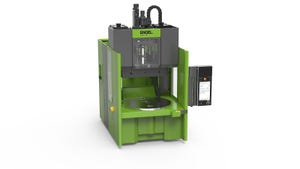Updated: BASF pairs with CSM for biobased succinic-acid route to polymers
Utilizing the product as a monomeric building block in a variety of biopolymers, including biodegradable polyesters, BASF (Ludwigshafen, Germany) and CSM nv (Diemen, Netherlands) announced a joint-production project for biobased succinic acid.
September 30, 2009
(Diemen, Netherlands) announced a joint-production project for biobased succinic acid. The companies’ BASF Future Business and PURAC units have been developing industrial fermentation and downstream processing systems for biobased succinic acid, with plans to start commercial production in the second quarter of 2010. The partners say the venture represents a melding of their respective capabilities, given BASF’s stature as a global leader in intermediates, chemical building blocks, and polymers, and PURAC’s position as a leading producer of lactic acid and lactides from renewable feedstocks. Among other developments, it recently developed an additive to better control the polymerization of polylactic acid (PLA), with the end effect being that processors are said to see smoother processing of the material on their equipment. Juliana Ernst, senior manager corporate media relations BASF, told PlasticsToday that production will be done in an existing fully-equipped PURAC plant in Spain. The technology can use different sources, such as starch, glucose, and glycerine, but BASF declined to name the source for its first production run.
BASF and CSM say their technology will allow the economical production of succinic acid on industrial scale while applying a renewable substrate, with carbon dioxide used as a raw material during fermentation. BASF markets its Ecoflex biodegradable polyester for applications such as mulch or trash bags.
In January 2008, DSM announced that it would work with France’s Roquette on the commercialization of a process to ferment biobased chemical precursors like succinic acid, with plans for a “demonstration plant” to open in Lestrem, France in 2009. That facility was expected to have annual capacity for several hundred tonnes. Roquette is a producer of sugar-alcohol polyols, creating more than 650 products from 6 million tonnes of corn, wheat, peas, and potatoes.
DSM Venturing, the capital arm of Royal DSM N.V., also invested in renewable-based plastic manufacturer, Novomer, which uses carbon dioxide and other renewable materials to create polymers, plastics, and chemicals. —[email protected]
About the Author(s)
You May Also Like


